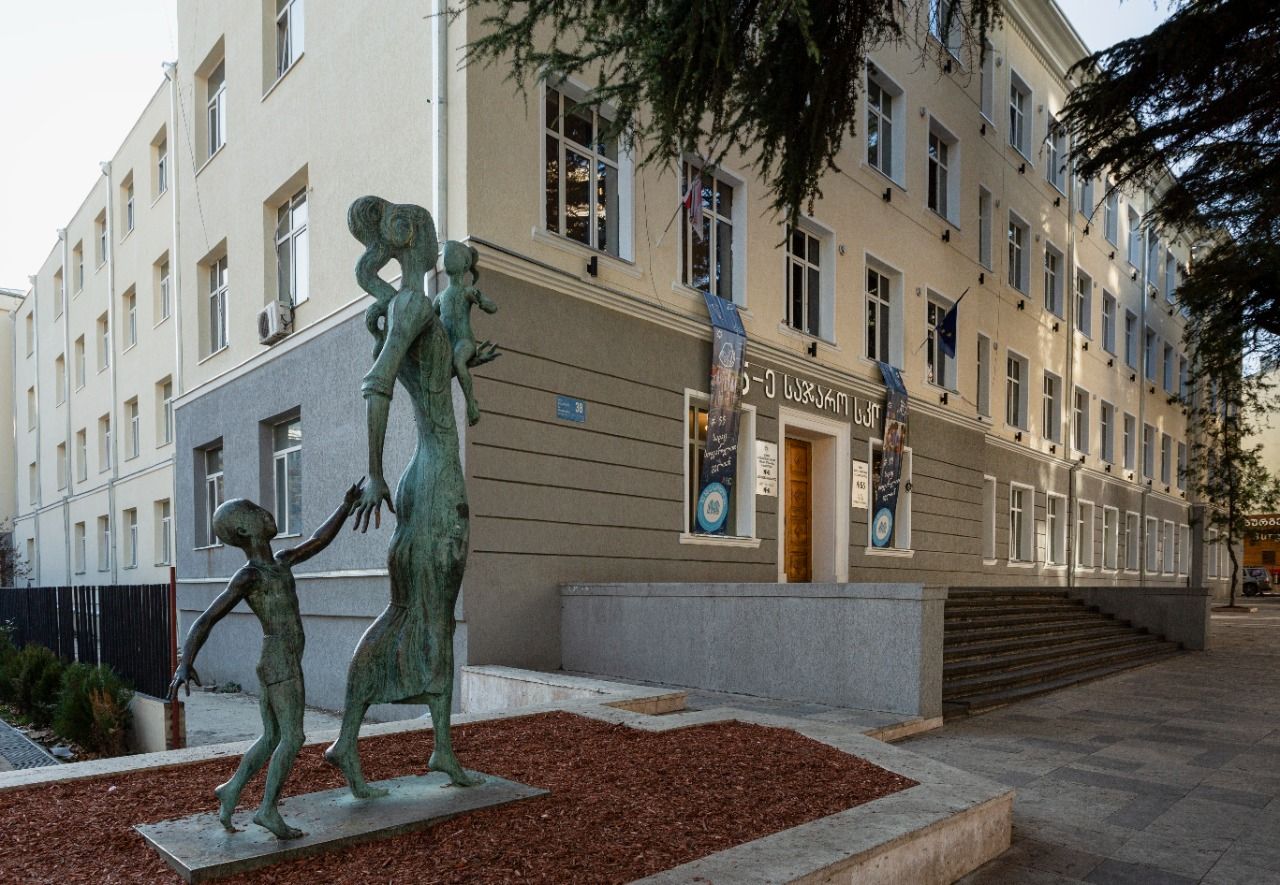
EU helps make 26 Public Buildings throughout Georgia energy efficient
Tbilisi First Experimental School is one of the 26 public buildings that went through energy efficient rehabilitation thanks to the EU‘s project ‘Energy efficiency improvements in public buildings and the use of renewables and alternative energy in Georgia’. As a result of the renovation in the two school buildings, the school heating has been simplified and improved. The saved money will be used for different school initiatives development in future.
The works are fully in line with EU standards and include insulation of the roof and exterior walls, renovation of the heating system, thermal insulation of heating pipes. A local ventilation system has been installed in classrooms using individual recuperative units.
The project implementers expect that the energy savings resulting from the renovations would help recover the investments in five years. As a result of the EU-supported energy efficient renovation, working and learning environment has improved for 10,000 beneficiaries of the buildings, including children, teachers and employees of municipal buildings. The project is expected to be completed in 2022.
This school is just one of the 26 public buildings located in three different climatic zones throughout Georgia where energy efficient measures have been introduced. The project is implemented by the Municipal Development Fund with the support of the European Union, the European Bank for Reconstruction and Development, E5P and the Nordic Environment Finance Corporation (NEFCO). The goal of the project is to save energy, introduce renewable and alternative energy sources in buildings and ensure energy efficiency.
“It is especially important that the key beneficiaries of these buildings are mostly children and young people. They become aware of importance of energy efficiency from an early age. Their learning environment would improve as energy-efficient measures are implemented,” – explains Anano Tavdgiridze, Project Manager of the Municipal Development Fund. According to Ms. Tavdgiridze, the project would significantly reduce energy consumption and maintenance costs of the administrative and educational buildings, and would cut down CO₂ emissions by 1.120 tons, reducing negative impact on the environment.
These results have been achieved thanks to the support of the European Union and other partners provided to the Municipal Development Fund for improving insulation of roofs, walls and piping in schools, kindergartens and administrative buildings; mounting solar panels and new ventilation systems; and installing LED lamps and modern outdoor lighting systems.